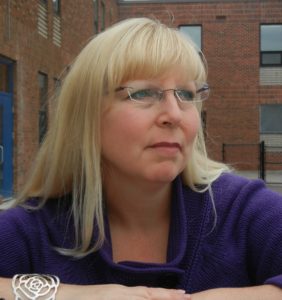
For as long as I have seriously thought about Holy Communion, I have thought about it as a mostly personal portion of the service. The time leading up to Communion is probably the point in church when my focus is most drawn within myself. I spend that time reevaluating my relationship with God, recognizing how more often than not I have fallen short in many ways, and remembering that through Christ and his loving sacrifice on the cross I am offered forgiveness, hope, and a way to do better. Then, as I partake of Communion, I marvel at so much love, grace, and mercy being offered by someone so holy to someone as unholy as me.
That was the sum of my thoughts during Communion until two weeks ago. Two weeks ago, I went away to the Franciscan Spiritual Center for three days to dialogue with a small group of Christians from various theological and geographical places about sexual diversity in the church. After hours of sharing stories, thoughts, laughter, and tears with each other, we ended our last session with Communion.
As our facilitator held the bread and the cup to pass around our seated circle, she explained that before we passed the elements to the next person we were to say a blessing we wished for them to receive when they returned to everyday life. That one unfamiliar act she asked of us—to bless each other as we passed the body and blood of Christ—opened my eyes to a side of Communion I had never seen before. Suddenly, Communion wasn’t simply about my relationship with God, it was also about my relationships within the body of Christ. Communion wasn’t simply a moment to consider how I could better reflect Christ, it was also a moment to consider how I had seen Christ reflected in the people around me.
As each person provided an intimate, unique blessing over their neighbor, I felt a sense of deep connection like I had never before experienced during Communion. Here were thirteen people from different theological stances and approaches putting those differences temporarily aside in order to love each other, to love God together, and to jointly reconnect to that ultimate love evidenced by Christ on the cross. Here were thirteen people recognizing God at work in the people around them and praying that God would continue to pour into them and fill their needs. Here were thirteen people truly reflecting the body of Christ.
For the first time in my life, taking Communion was both deeply personal and deeply communal, and the more I think about it, the more I feel that is how Communion was meant to be. Personal, communal, and utterly sacred.
Angélique Gravely is a recent graduate of Eastern University and editor/leadership member of OneEastern, an alumni community supporting LGBT+ students and staff.


